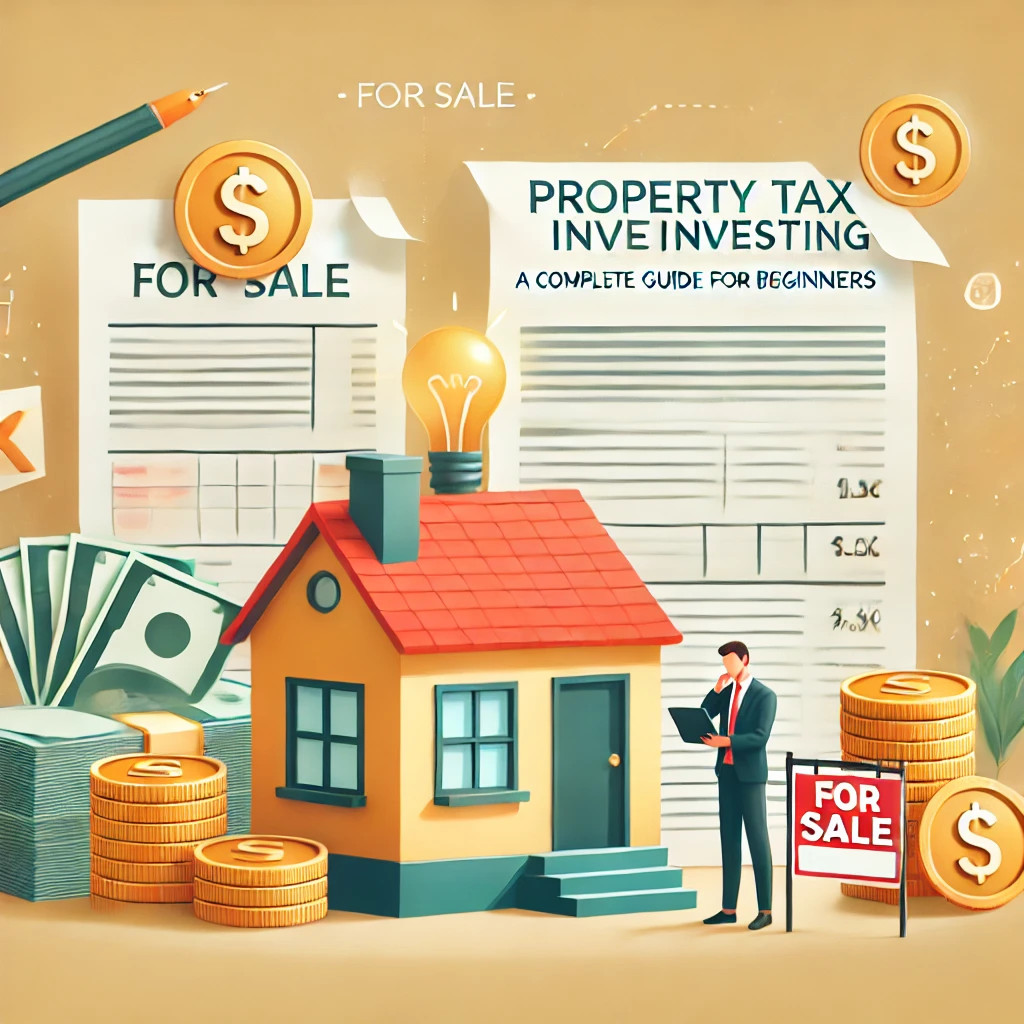Real Estate Investing Opportunities through Property Tax Debt Certificates
Nov. 5, 2024

Property tax investing is a unique way to earn passive income while potentially acquiring real estate at a discount. This investment strategy allows investors to help local governments recover unpaid property taxes while earning substantial interest rates on their investment. In this guide, we’ll walk you through how property tax investing works, the potential returns, and the risks involved.
What is Property Tax Investing?
How Does Property Tax Investing Work?
Property tax investing involves buying tax debt certificates on properties with unpaid taxes. Local governments issue these certificates to recover the revenue, and investors who buy them have the right to collect the unpaid tax from the property owner, often with high interest.
Benefits of Property Tax Investing
One of the biggest advantages of property tax investing is the potential for high returns through interest. Additionally, if the property owner doesn’t settle the debt, investors may acquire the property at a fraction of its market value. Here’s how the process works step-by-step to benefit the investor.
Step-by-Step Guide to Property Tax Investing
1. Property Tax Issuance
It all begins when the local government issues a property tax bill. For example, a tax bill for USD 1,328.19 may be issued for a property worth USD 151,600. These amounts vary by location and property value.
2. Tax Payment Deadline
The government sets a deadline for property owners to pay their taxes. If the property owner fails to meet this deadline, the tax remains unpaid, and the process advances.
3. Unpaid Taxes and Final Notice
After the deadline passes, the tax debt is deemed overdue. The government may then offer a debt certificate to investors, allowing them to pay the owed amount and acquire rights to the debt.
4. Issuing the Debt Certificate
The local authority issues a debt certificate as a lien on the property. This certificate entitles the investor to collect the tax plus interest or to acquire the property if the debt remains unpaid.
5. Investor Purchases the Certificate
The investor buys the debt certificate, paying the owed tax amount to the government. This transaction transfers the debt rights to the investor, who can now earn interest on the amount.
6. Interest Accumulation
After acquiring the certificate, the investor earns interest until the debt is repaid. In our example, the amount owed becomes USD 1,646.95 with interest, payable to the investor. Depending on local regulations, interest rates can range from 5% to 36%, potentially yielding significant returns.
Investing in property tax certificates can yield profits ranging from 10% to 36%, depending on the interest rate established by the local government. This makes it an attractive investment option, particularly if the property owner fails to redeem the debt and the investor subsequently acquires the property.
7. Options for Debt Resolution
The property owner can repay the debt within a set “redemption period.” If they pay, the investor receives their principal investment and interest. If not, the investor may foreclose and take ownership of the property.
Benefits and Risks of Property Tax Investing
Property tax investing offers the dual benefits of steady income from interest and the chance to acquire real estate below market value. However, there are risks, such as the condition of the property, extended repayment periods, and potential difficulties in recovering the investment.
FAQ: Frequently Asked Questions About Property Tax Investing
1. What is property tax investing?
Property tax investing involves buying certificates on properties with overdue taxes. The investor pays the tax debt to the government and has the right to collect it from the property owner with interest.
2. Can I lose money in property tax investing?
Yes, there are risks. Poorly maintained properties, long redemption periods, and market volatility can impact returns. It’s important to research each investment thoroughly.
3. How long does it take to get returns on property tax investments?
The return period depends on local laws and the property owner’s financial situation. Some cases yield quick returns, while others may take years.
4. Can I inspect the property before investing?
Physical access to the property is usually restricted, but you can review public records and conduct external inspections to gauge property value and condition.
5. What happens if the owner doesn’t repay the tax debt?
If the debt remains unpaid after the redemption period, the investor may foreclose on the property, potentially taking full ownership.